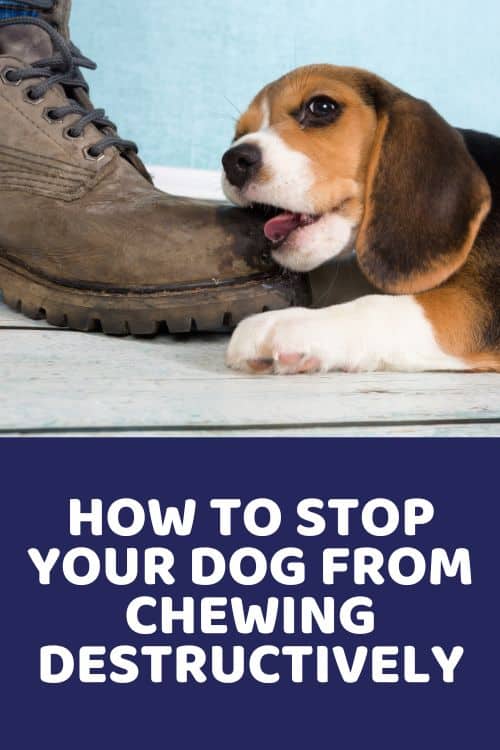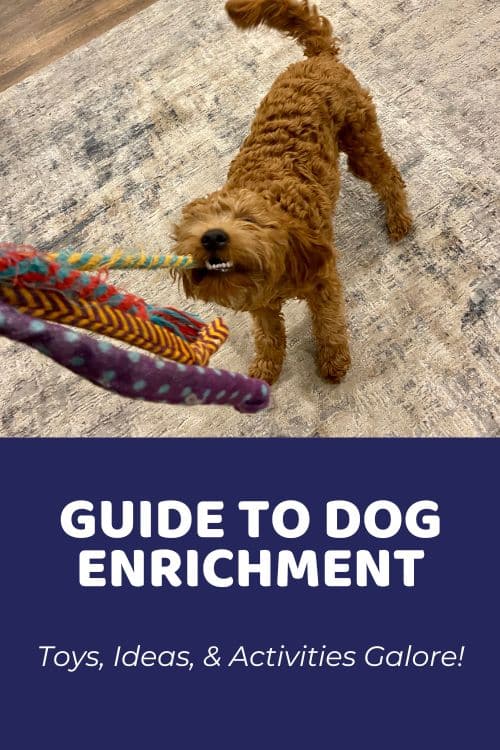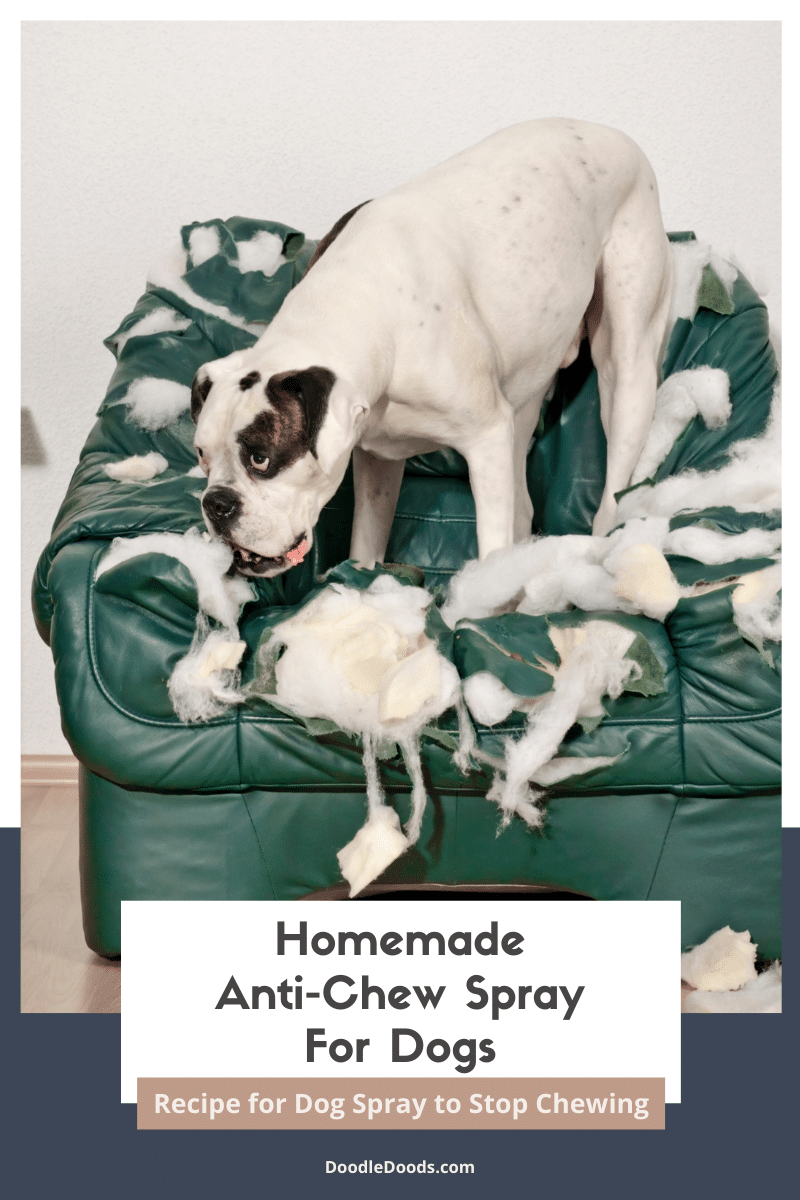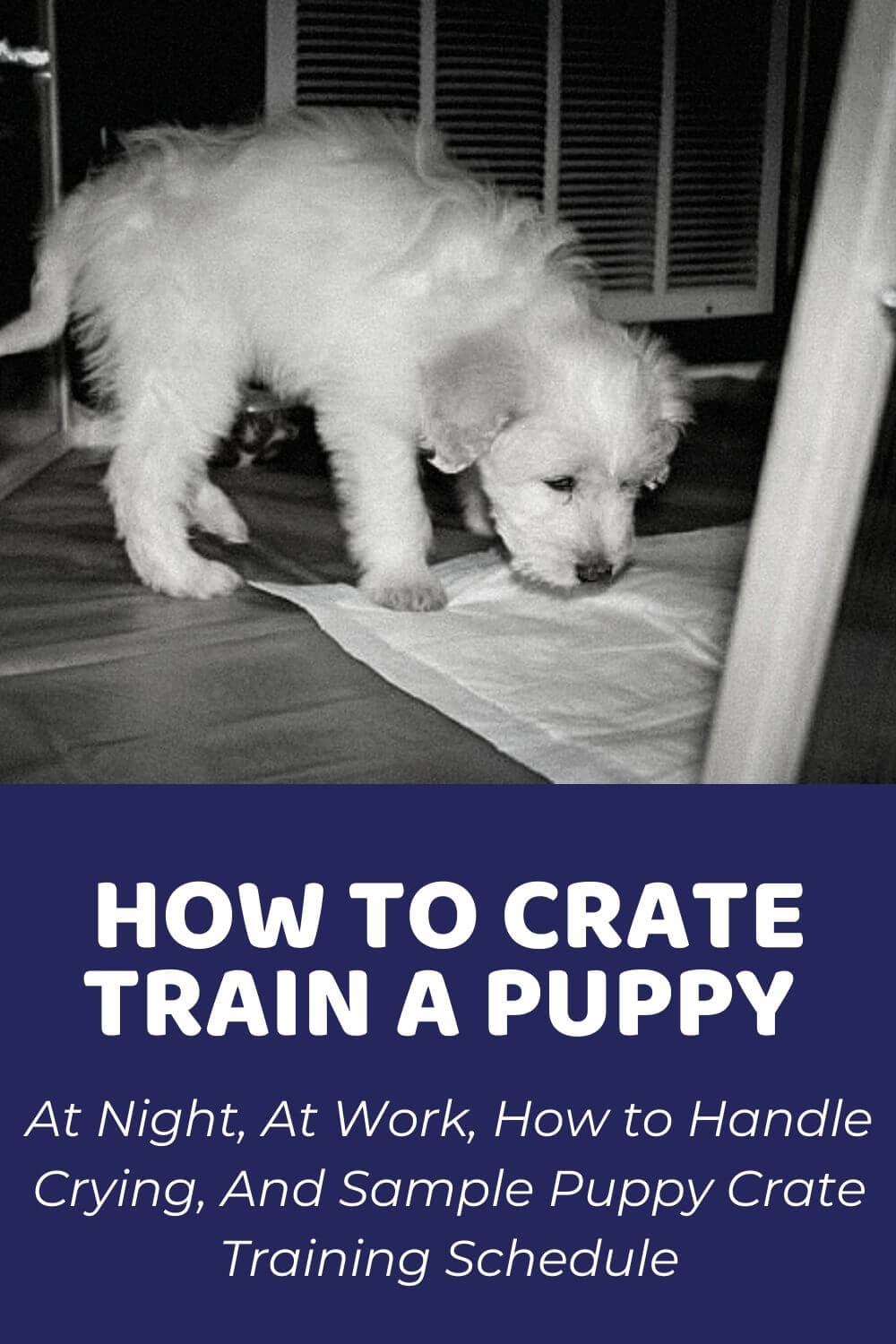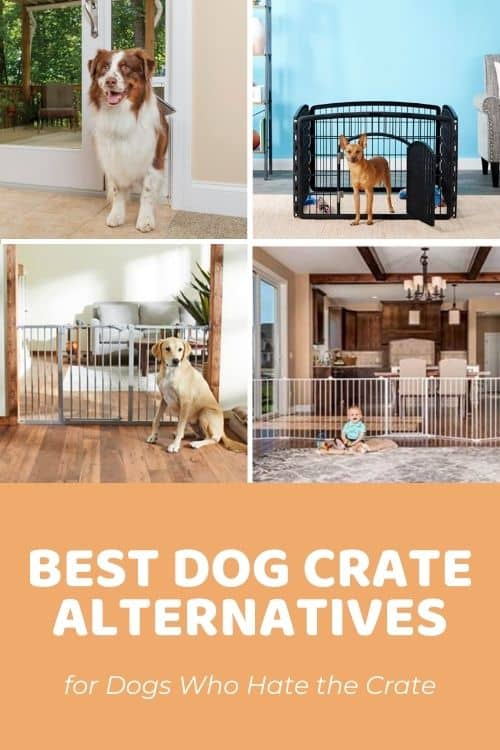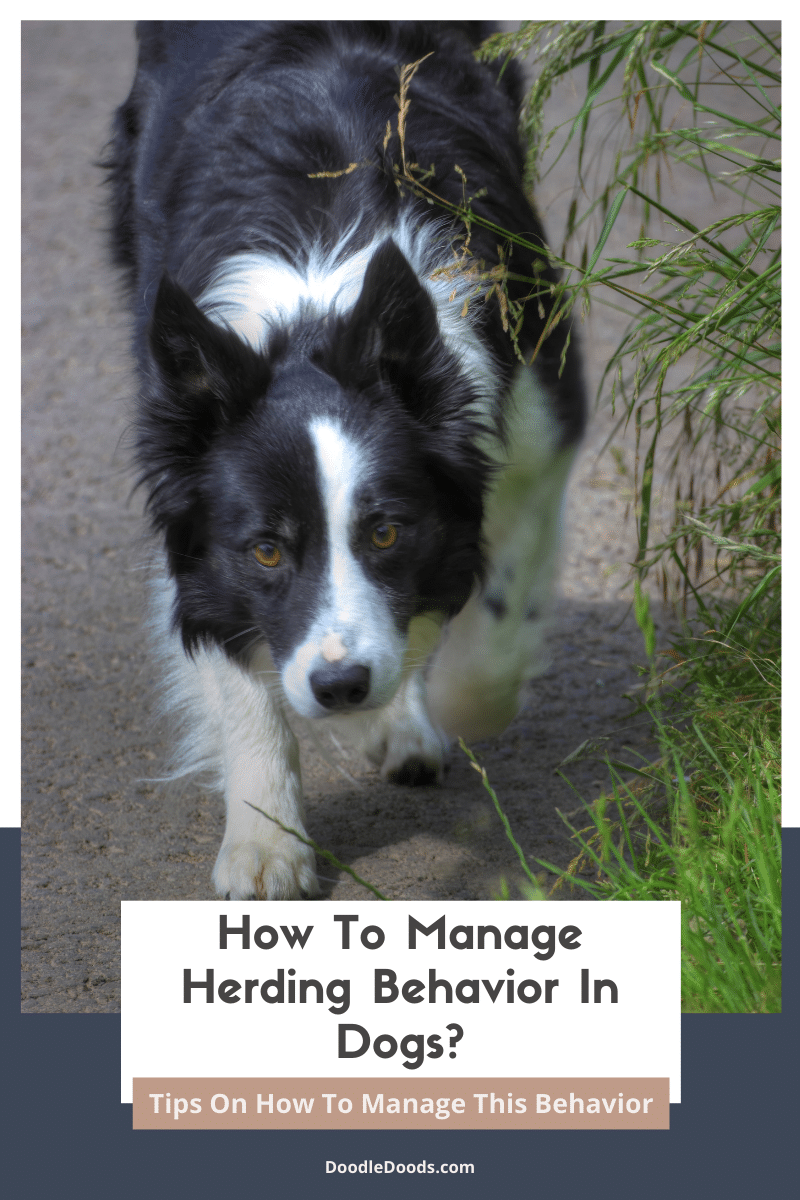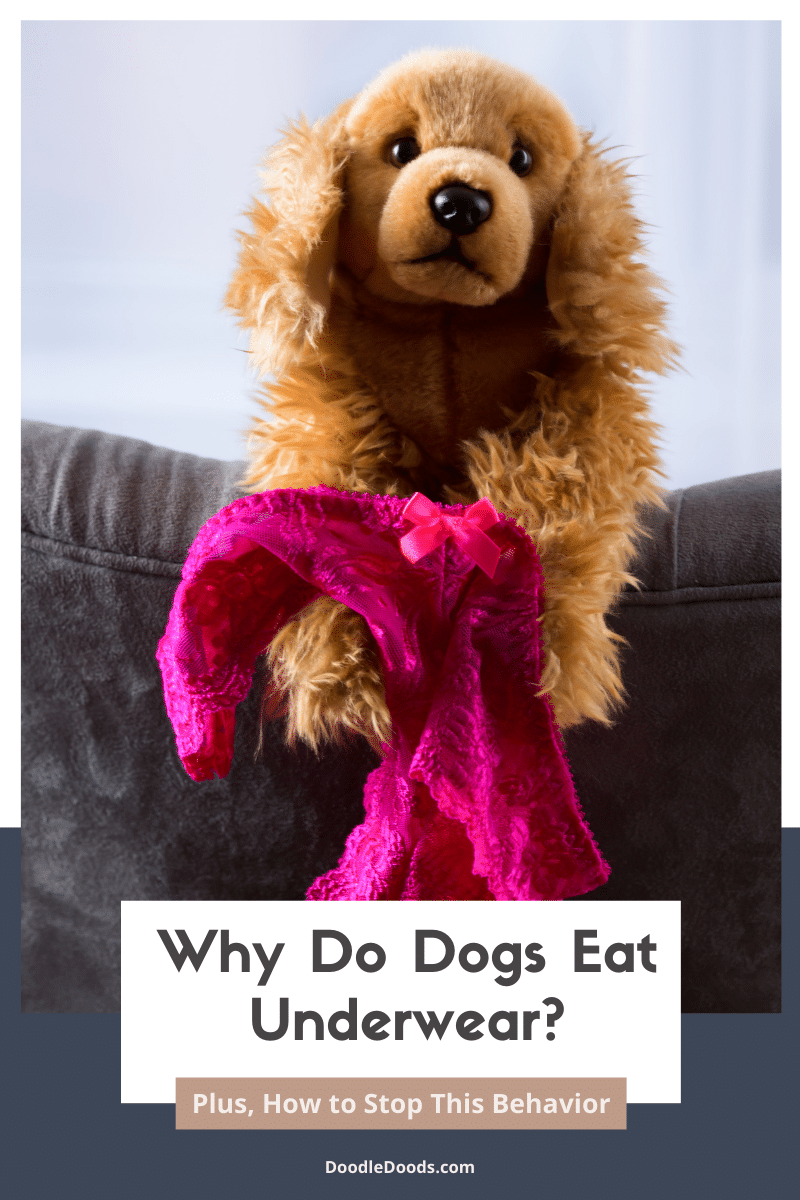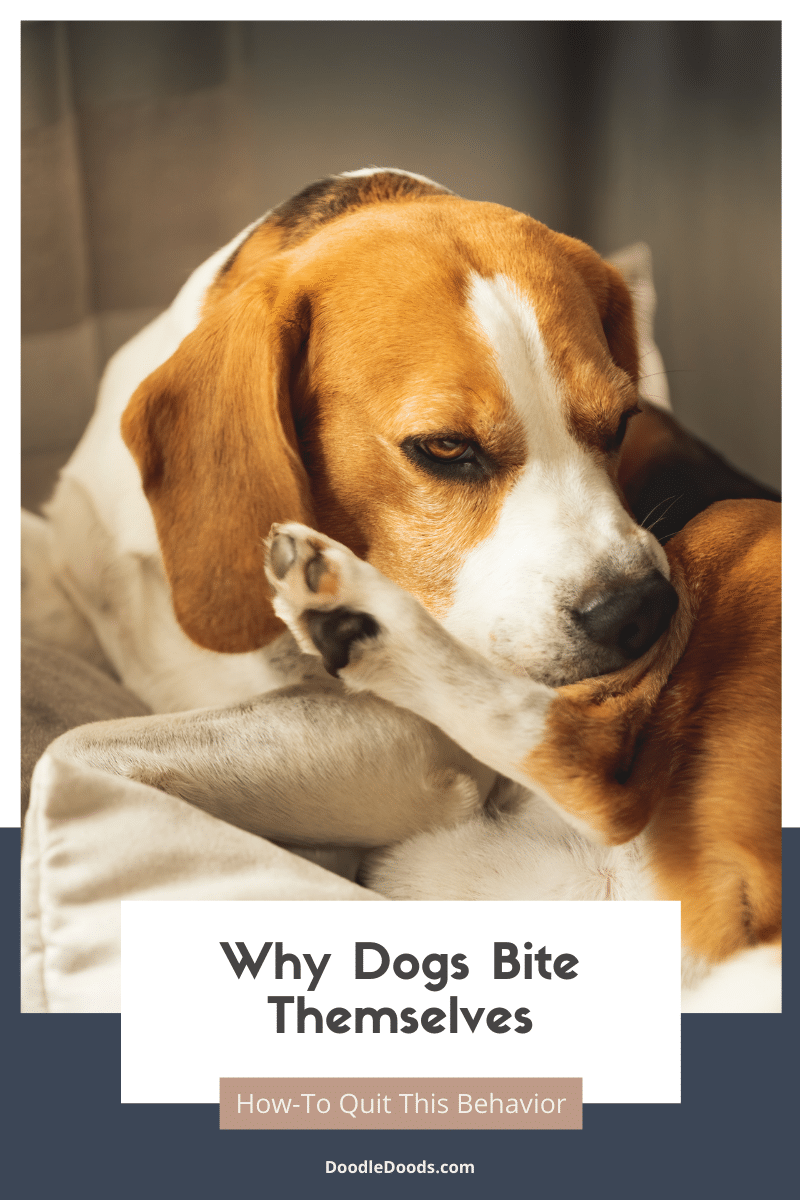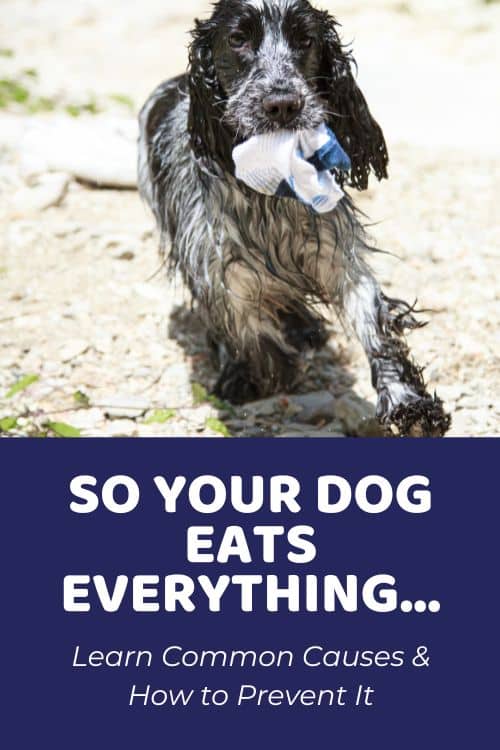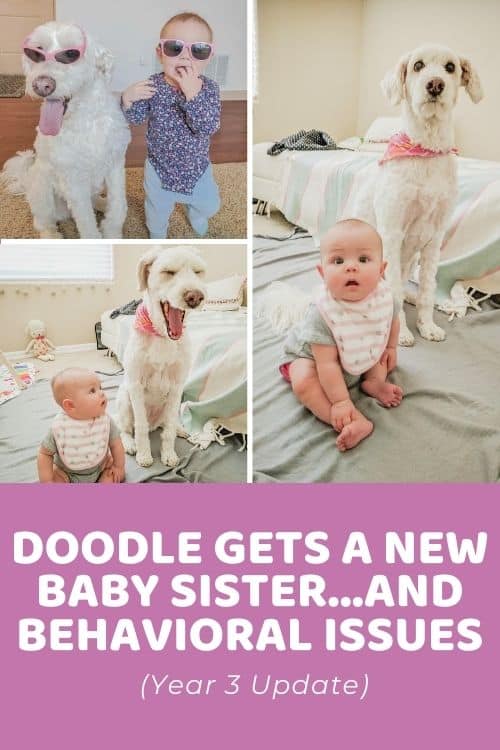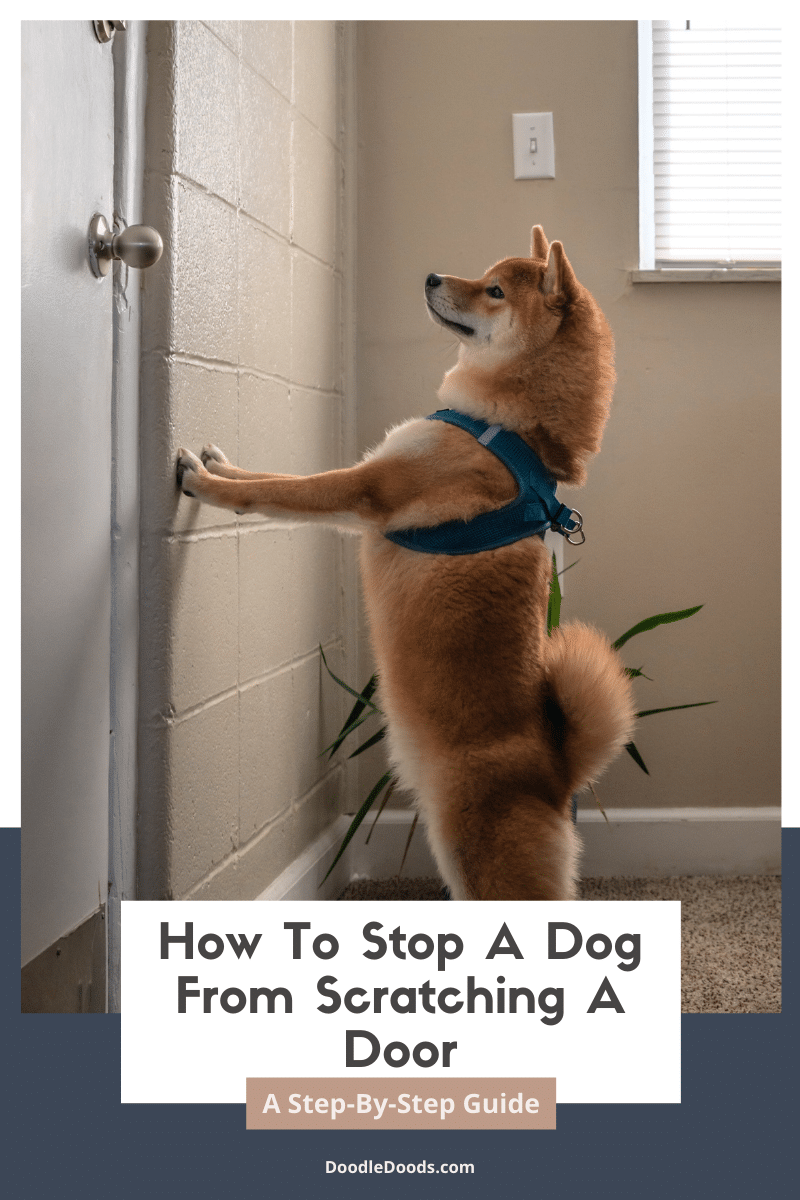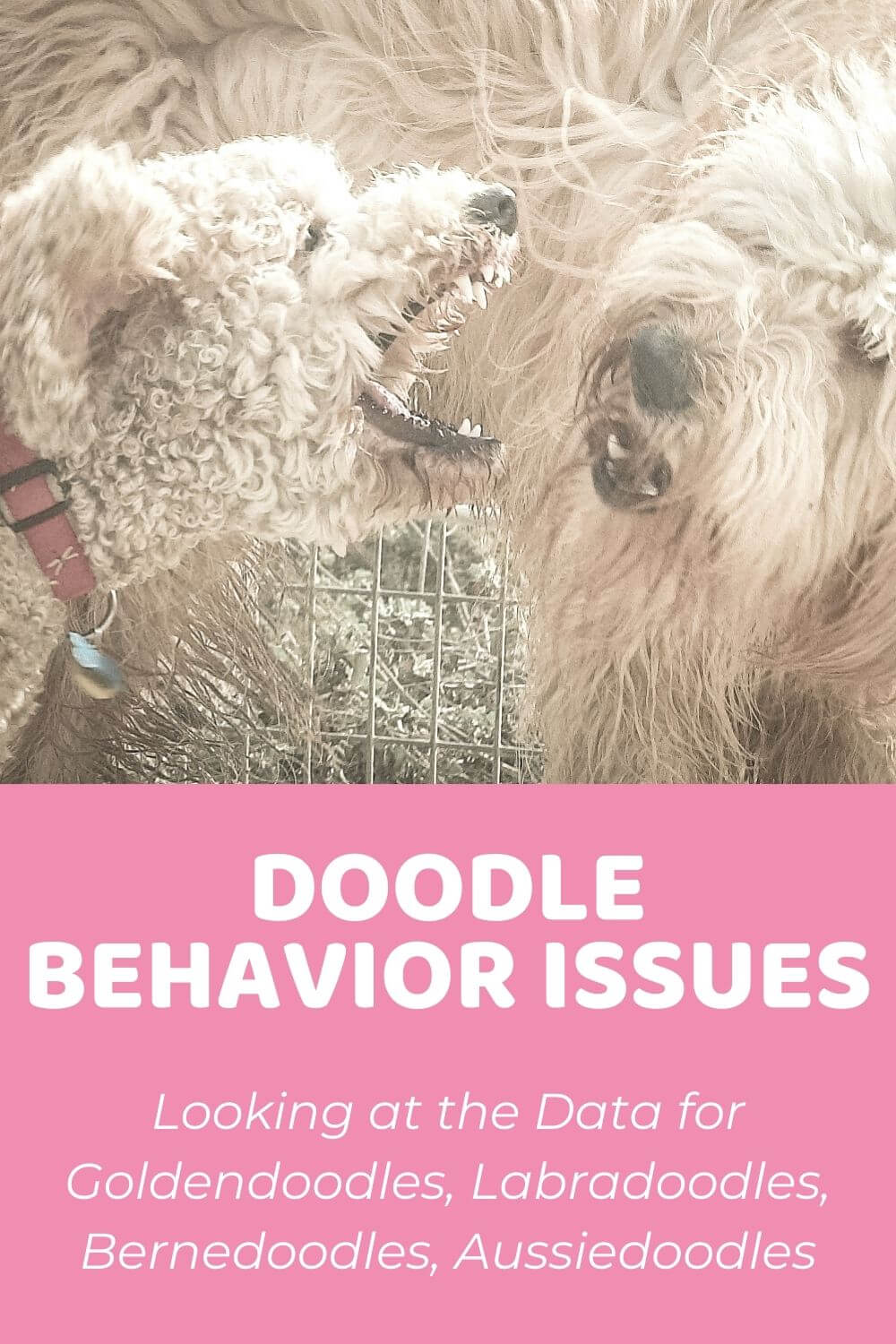If you’ve got a dog that loves to chew anything and everything, then you’ve come to the right place. Many dogs engage in destructive chewing, which can be frustrating and costly for their owners. Not to mention, even dangerous for our canine pals. In this article, we will discuss why dogs chew destructively and how to stop them from doing it. We will also cover some home remedies that may help, as well as what NOT to do when trying to stop your dog from chewing. So, if you’d like to find out what are the best methods and home remedies to stop a dog from chewing furniture, then keep on reading.
Table of Contents
- Introduction to Stopping Destructive Chewing in Dogs
- Why Do Dogs Chew Destructively?
- Proven Home Remedies To Stop Dogs From Chewing Furniture
- 7 Things To Avoid While Correcting Destructive Chewing In Dogs
- Stopping Destructive Chewing in Dogs: FAQs
- The Ultimate Guide to Stopping Destructive Chewing in Dogs: Final Thoughts
Introduction to Stopping Destructive Chewing in Dogs
It’s a common sight: a dog happily chewing on a piece of furniture, or worse, a shoe. Dogs chew for many reasons: boredom, anxiety, teething pain, and excitement. Needless to say, excessive chewing can wreak havoc in your home and garden, and even cause harm for your precious little friend.
Although destructive chewing can be a difficult problem to solve, with the right training methods and some patience it’s possible to stop your dog from chewing on furniture and other household items.
In this guide, we’ll take a look at some of the main causes of destructive chewing in dogs and also discuss the best methods and home remedies to stop dogs from chewing furniture and other items. You just need to put in the work and stay consistent, and you will soon have a pup that knows exactly what is and isn’t allowed.
Why Do Dogs Chew Destructively?
The first step when trying to stop destructive chewing is to figure out why your dog chews in the first place. Keep in mind that chewing is a completely natural behavior in dogs – it’s simply in their nature. That’s why it’s so important for your pup to have their very own chew toys. This way, they’ll have something pet-safe and appropriate to chew on while keeping your furniture and socks untouched.
Still, excessive chewing is a problem in itself. And if your pup isn’t happy nibbling on its own chew toys, you’ve got a problem that needs to be dealt with.
There are several reasons why dogs may engage in destructive chewing. Boredom is one of the most common causes – if your pup isn’t given enough mental stimulation, they may find solace in chewing on items to pass the time. Dogs also need plenty of exercise to keep boredom and restlessness at bay.
That being said, anxiety and stress can also lead to destructive chewing, such as separation anxiety or loneliness in general. Dogs also chew out of excitement. If they’re feeling overly stimulated or anxious, they may take it out by biting objects around them.
Teething pain can also contribute to chewing. Like babies, puppies are prone to soreness and discomfort as their teeth come in. So, during this life stage, it’s vital that your new puppy has a healthy chewing outlet to satisfy those natural urges and soothe the discomfort.
Moreover, destructive chewing and other destructive behaviors could also be due to underlying health issues. For instance, if your dog has sore gums, they may try to alleviate the pain by chewing excessively.
Then there’s also destructive chewing that’s led by a dog’s scavenging instinct. If they’re frustrated to get to an object through a barrier, they may start to chew destructively. And finally, almost all dogs simply enjoy the act of chewing for hours on end. This means that you just have to put in more time and effort to train this habit out of your pup.
The good news is that there are ways to stop your dog from chewing destructively! Here are some tips:
Proven Home Remedies To Stop Dogs From Chewing Furniture
Going For A Comprehensive Health Check-Up
Dogs that are feeling unwell may chew as a form of self-soothing. It’s important to make sure your pup is healthy and free from any underlying medical conditions. A comprehensive health checkup with your veterinarian can help you rule this out.
As soon as you notice any changes in your dog’s behavior or appetite, it’s time for a vet visit. We also recommend that you take your adult dog for a yearly vet checkup. If you’ve got a puppy or a senior pup, more frequent visits may be necessary.
Exercise Your Dog Regularly
The easiest, cheapest home remedy to stop a dog from chewing furniture is to make sure they’re tired enough. As we mentioned earlier, boredom is one of the leading causes of destructive chewing in dogs. Regular exercise is essential for keeping your pup happy and healthy.
Try to provide your dog with at least 30 to 60 minutes of physical activity a day, such as walking or playing fetch. This can help reduce their energy levels and stop them from seeking out objects to chew on.
Also, keep in mind that different breeds have different exercise requirements. So, if you’ve got a super active dog, you have to make sure they get enough exercise.
Keep Items Out Of Your Dog’s Reach
Dogs are naturally curious and like to explore, so make sure any items that are potentially chewable (shoes, furniture, etc.) are out of your pup’s reach. That’s the most effective thing you can do to keep unsuitable items out of your dog’s mouth.
Clean socks? Into the drawer, immediately. Worn socks? Hamper! TV remotes? Place them on a higher shelf or put them in a cabinet. If they’re out of sight, they really are out of mind.
Don’t Forget Mental Enrichment
In addition to physical exercise, you should also provide your pup plenty of mental stimulation. This can be done through interactive toys, puzzle games, and trips to the dog park. Also, regular walks can help reduce boredom, as there’s always something interesting to sniff and explore. All these activities will help keep their brains engaged and stop them from getting bored.
Since boredom is one of the most common causes of destructive chewing in dogs, it’s important to give them plenty of mental stimulation throughout the day alongside a healthy exercise routine. Even training sessions are a great way to keep your pup entertained and stop them from getting bored.
You can even indulge your pup in indoor games, so there’s no excuse with bad weather. Playtime is an important part of any dog’s day and can help stop destructive chewing. Spend time with your pup indoors, playing fetch or tug-of-war – anything to keep them occupied and their minds engaged!
Apply Dog-Safe Anti-Chew Spray On Furniture
If you’re looking for ultimate home remedies for stopping dogs from chewing furniture then be sure to try out taste deterrents. There are many taste deterrents available that can discourage your dog from chewing on furniture. These products can be sprayed onto furniture, shoes, and other items that your pup may enjoy chewing on. Be sure to choose a product that is safe for your pet and use it as directed.
You can either purchase a dog-safe anti-chew spray or learn how to make a simple homemade anti-chew spray with just a few household ingredients. Our anti-chew spray recipe is vinegar based so that the unpleasant taste and smell will turn your pup off from chewing furniture soon after. If you’re looking for home remedies to stop dog from chewing wood, you might find anti-chew sprays helpful.
Reduce Stress & Anxiety
Not only is boredom a leading cause for destructive chewing, the culprit could also be stress or anxiety. For instance, in stressful situations or when dealing with separation anxiety, dogs may start to obsessively chew items to soothe the emotional distress.
For this reason, you may have to reduce anxiety or excitement level. If your pup is feeling overly anxious or excited, it could lead to destructive chewing. To reduce these feelings, try engaging them in calming activities like gentle playtime or cuddling.
In general, try to provide your dog with a stress free and nourishing home environment. This will keep their stress levels at a minimum, boost their confidence, and make them feel safe and secure even when you have to leave the house for a few hours.
Train Your Dog To Feel Comfortable In A Crate
A great tip to curb destructive chewing is to utilize crate training. Your dog’s crate should be their very own, personal safe haven where they can retreat whenever necessary. If your pup is feeling anxious or overwhelmed, it may help to provide them with a safe space. Train your dog to feel comfortable in a crate and allow them some time out from the home environment if needed.
Keep in mind that you should never use the crate as a punishment, nor should you punish your dog for chewing destructively.
Use Physical Barriers
Another great home remedy to stop a dog from chewing furniture is to use physical barriers like baby gates and crates. This will stop your pup from having access to the areas of your house that you don’t want them in, such as the living room or kitchen.
These physical barriers can be a great way to help stop destructive chewing as it keeps your pup away from items they should not be getting into contact with. When using physical barriers, make sure that there are still plenty of toys and chewable treats available for them so they won’t get bored and start making their own fun.
Utilize Calming Products For Stress Chewing In Dogs
One of the most effective ways to stop destructive chewing is to reduce your pup’s stress levels. If your dog is suffering from separation anxiety, aging issues, or just general stress and anxiety, using a calming diffuser alongside other science-based methods can help stop them from chewing on items around the home. The diffuser works by releasing scents that are designed to soothe and relax stressed-out pups.
You can also grab some calming treats for anxious dogs or opt for a CBD oil instead to relieve stress and anxiety.
Give Your Dog A Chew Toy
Needless to say, you must provide appropriate chew toys for your pup. By giving your pup an appropriate object to chew on, you’re redirecting their attention away from items that aren’t meant to be chewed. Make sure to provide toys that are durable enough to stand up to your pup’s teeth!
That being said, you should never give your old socks or other household items to your dog to chew on. Although you might think it’s a great way to put trash into good use, it’ll only teach your pup that socks and other similar items are okay to chew.
If your pup *REALLY* loves to chew, make sure to check out our full guide on the best Chews + Best Dog Bones for Chewers: Reviews and Recommendations.
Use Positive Reinforcement Training
Positive reinforcement training is key when it comes to teaching your pup what they should and shouldn’t chew. After all, it’s your responsibility to teach your dog good manners. And the sooner you start, the better.
Reward your pup by using treats or verbal praise each time they stop chewing the furniture or withhold from doing it, but never punish them for doing so. Punishing them will only make the situation worse, as it can lead to fear and aggression.
If you’re interested in learning more about this topic, our guide on obedience training for dogs is a great place to start.
Stay Consistent
Staying patient and consistent is key to stopping destructive chewing in dogs. Provide your pup with the same rules and boundaries all the time, no matter what. This will help them understand what behavior is expected from them and what isn’t.
Although it will take some time, your pup will surely learn appropriate chewing manners, as long as you teach them right. Just remember to never give up on training and keep reinforcing positive behaviors whenever possible.
Make Sure Your Pup Is Well Fed
Sometimes, a dog may just be hungry. Make sure your pup is fed regularly to avoid any nutritional deficiencies that might lead them to resort to destructive chewing when looking for food sources around the house.
Also, read the dog food labels closely to ensure that your pup is getting the best of the best. Nutritional imbalances can also lead to health issues that cause excessive chewing. So, opt for nutritionally balanced formulas that are made with real, high-quality ingredients and without any unnecessary artificial ingredients or fillers.
Leave Your Scent On Your Dog’s Chew Toy When You Go Out
If you’ve got an anxious pup, you can leave your scent on their toys. If you’re leaving the house for a while, try rubbing a bit of your clothing or an item that smells like you onto their toys. This will help them feel more secure and stop your dog from chewing furniture when you’re gone.
Enroll Your Dog In A Training Class
With the right tools and techniques, you can stop destructive chewing in dogs and teach them appropriate behaviors. If you’re having trouble tackling this problem on your own, reach out to a professional dog trainer for help! They can provide personalized guidance that is tailored to meet the needs of your pup.
We also recommend you check out this excellent online puppy school by Baxter & Bella. This program includes a ton of resources on how to successfully raise a well-mannered and confident dog. It also includes lessons on destructive chewing and other destructive behaviors.
Need help with training?
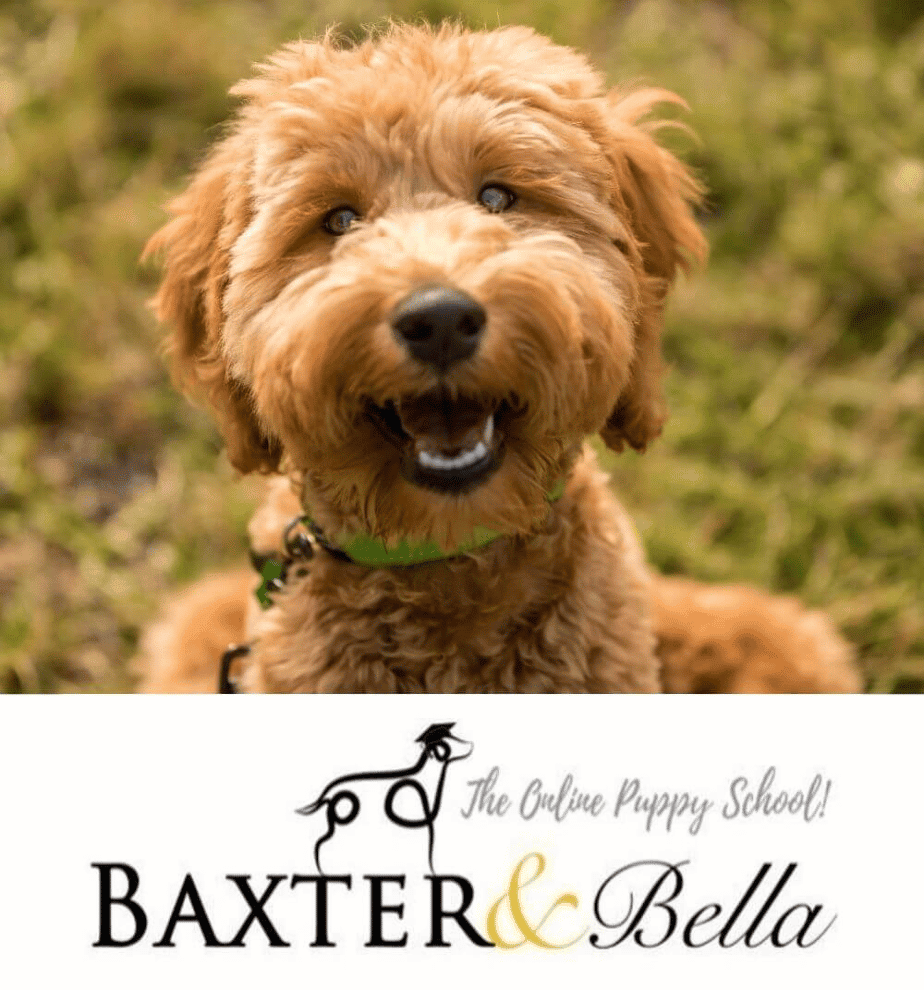
Use our discount code: DOODLEDOODS at checkout for an instant 25% off of BAXTER & BELLA, The Online Puppy School – an incredible value on their lifetime membership!
Learn More About BAXTER & BELLA7 Things To Avoid While Correcting Destructive Chewing In Dogs
While there are many methods to stop your pup from chewing, it’s important to know what NOT to do:
- Punish or scold. This can actually make the problem worse, as your pup may become fearful and anxious. Instead, focus on providing positive reinforcement when they stop chewing. Negative reinforcement can be counterproductive when trying to stop destructive chewing as it could make the problem worse. Instead of using physical punishment, use positive reinforcement techniques such as praise and treats.
- Leave objects lying around. If you don’t want it to be chewed, don’t leave it lying around! Make sure all objects are out of reach and your pup doesn’t have easy access.
- Stop providing mental stimulation and exercise. If your pup is bored, they may turn to destructive chewing as a way to pass the time. Make sure you continue providing them with plenty of physical and mental stimulation throughout the day.
- Make assumptions. Don’t assume that your pup can figure out what is and isn’t acceptable by themselves. Provide appropriate chew objects for them and supervise when necessary so that you can stop unwanted chewing in its tracks.
- Use old household items as chew toys. Although environmentally it’s the responsible thing to do, giving your old socks and other household items for your dog to chew only teaches them that it’s appropriate. They don’t know the difference between old or new socks!
- Ignore it. If your pup is displaying destructive behavior, take action! Ignoring the problem can make it worse over time.
- Give up. Even if you have tried everything and nothing seems to be working, don’t give up! It may take some time and patience, but eventually your pup will learn what is acceptable and what isn’t.
Destructive chewing can be a difficult habit to break, but it isn’t impossible! By following these tips, you’ll soon have a pup who knows exactly what is and what isn’t allowed; all it takes is some patience and consistency.
Stopping Destructive Chewing in Dogs: FAQs
The best way to stop destructive chewing in dogs is by using positive reinforcement. Provide your pup with chew objects to redirect their attention away from items that shouldn’t be chewed, and reward them when they stop chewing on something they shouldn’t. You may also want to try dog-safe anti-chew sprays, as these can help stop the behavior. Additionally, providing plenty of physical and mental stimulation throughout the day can help reduce boredom-related chewing.
You also need to make sure all objects are out of reach and your pup doesn’t have easy access to things that shouldn’t be chewed. This will help reduce their urge to chew on inappropriate objects.
But what to put on furniture to keep a dog from chewing? Anti-chew sprays are actually excellent home remedies to stop your dog from chewing furniture. You even make a simple vinegar based anti-chew spray at home. However, you should use taste deterrents and anti-chew sprays alongside other methods when the goal is to stop destructive chewing.
With the right training and supervision most dogs outgrow destructive chewing. However, it may take some time and patience to stop the behavior, especially if your dog has learned this habit already. It varies from dog to dog, but most stop destructive chewing behaviors by the time they are one to two years of age. However, it may take longer for some dogs. The key is to start as early as possible, as this will help establish good chewing manners.
Homemade anti-chew sprays are surprisingly effective home remedies to stop dogs from chewing wood. These are typically vinegar based, as the bitter taste and smell will deter a dog from chewing wood.
It’s important to avoid punishing or scolding your dog for destructive chewing – this will not only be ineffective in teaching them not to chew, but it could also lead to behavioral issues in the future. Instead, focus on providing them with appropriate chew objects and reward them when they stop what they shouldn’t be doing. In addition, make sure all tempting items are out of reach so that your pup won’t have easy access to things they shouldn’t be chewing on.
The Ultimate Guide to Stopping Destructive Chewing in Dogs: Final Thoughts
Destructive chewing can be a difficult problem to solve, but with the right training methods and some patience it’s possible to stop your pup from chewing on furniture and other items. By following these tips and home remedies, you can stop your pup from destructive chewing in no time! Just remember to stay patient, consistent, and your pup will soon follow your lead.

